Conventional Loans
A Conventional loan is one that is insured, funded and serviced by private lenders as apposed to FHA, VA, or USDA loans which are also funded and serviced by the private sector, but are insured by the government.
Here we will discuss some advantages and disadvantages of Conventional loans.
Interest Rates
What might be considered a disadvantage to conventional loans is the interest rate will usually be higher than a government loan. However, there are other benefits of the conventional loan which more than offset a higher interest rate and in the end result in a lower average percentage rate (APR), such as lower monthly mortgage insurance discussed later in this article.
Credit History + Seller Contributions
A couple of disadvantages with conventional lending is credit history and seller contributions. Private lenders in general have stricter guidelines when it comes to credit versus FHA, VA or USDA. If your credit is in good shape then this will not be a problem. Also, conventional loans will only allow 3 percent seller contributions with higher LTVs, versus FHA will allow up to 6 percent seller contributions.
Lower Debt-to-Income Ratios
A disadvantage to conventional lending is generally lower debt-to-income ratios are required. Low income and high debt scenarios pose additional risk to private lenders, therefore debt ratio requirements are more stringent with conventional loans. If you have a higher debt ratio, you may want to consider an FHA or other government type loan if possible.
Down Payment
Conventional loans require a minimum of 3-5 percent down payment depending on your income and first-time home buyer status.
Mortgage Insurance
One of the best advantages of conventional loans is the mortgage insurance (MI). Typical monthly MI for FHA loans is .85 percent of the loan amount and in most cases will last for the life of the loan. Whereas typical conventional lending MI can be as low as .30 percent of a loan amount on a 95 percent Loan-To-Value (LTV), depending on your fico score. Also, the lower the LTV, the lower the MI.
Another important advantage is once a conventional loan LTV reaches 78 percent, monthly MI is required to be removed from your monthly payment by law. In contrast FHA loans, as mentioned earlier, monthly MI can last for the entire life of the loan.
Lastly, conventional loans do not require an up-front MI premium like FHA, VA or USDA. For example, FHA requires an insurance premium of 1.75 percent of the loan amount that can be added to your loan amount. Over the life of the loan, this can amount to hundreds of dollars in extra interest paid by the borrower, not to mention the extra principal added to your loan.

QUICK LINKS
OFFICE
Coastal Lending Group, LLC All Rights Reserved | Powered by Ranking Digital
